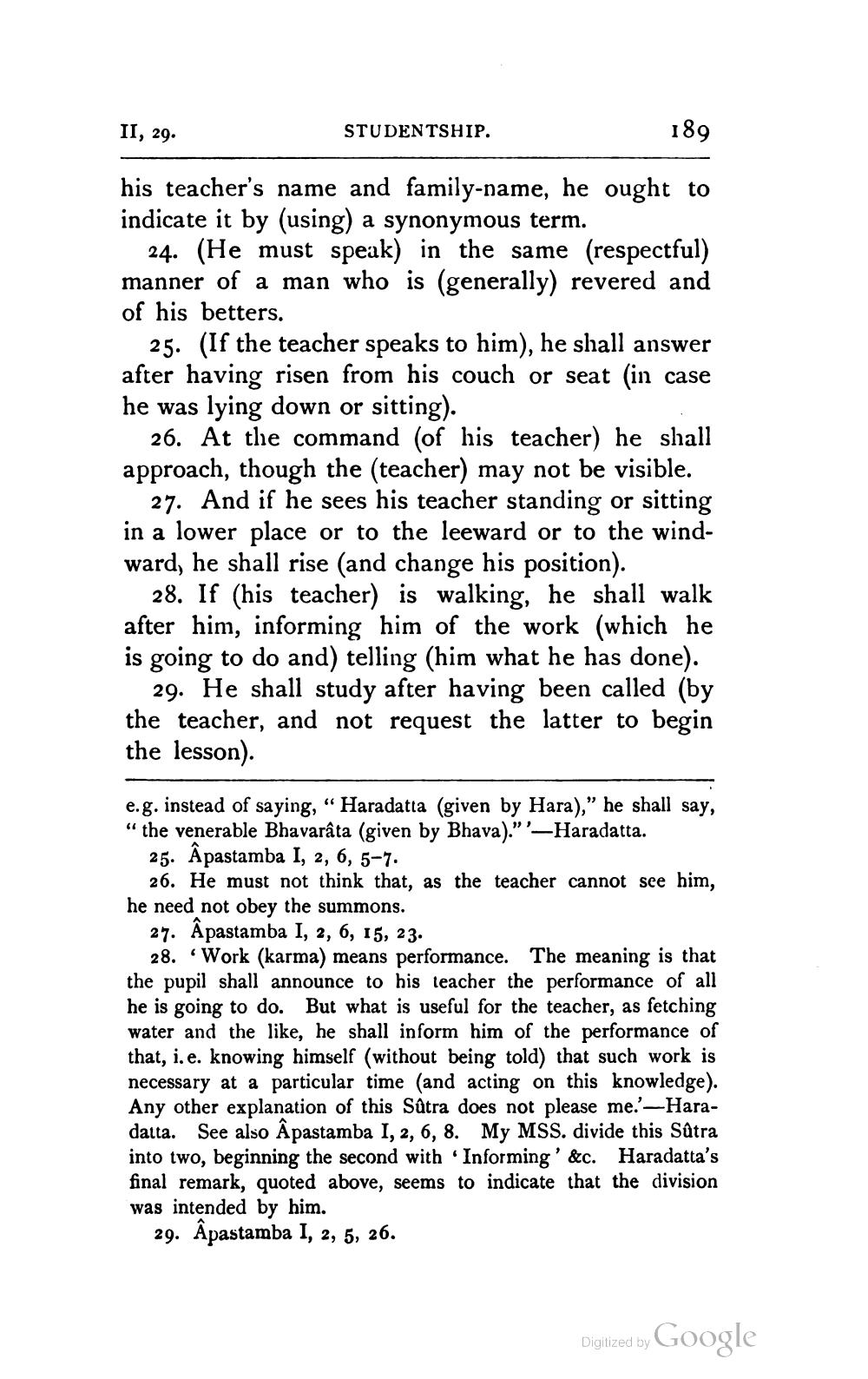________________
189
II, 29.
his teacher's name and family-name, he ought to indicate it by (using) a synonymous term.
24. (He must speak) in the same (respectful) manner of a man who is (generally) revered and of his betters.
STUDENTSHIP.
25. (If the teacher speaks to him), he shall answer after having risen from his couch or seat (in case he was lying down or sitting).
26. At the command (of his teacher) he shall approach, though the (teacher) may not be visible.
27. And if he sees his teacher standing or sitting in a lower place or to the leeward or to the windward, he shall rise (and change his position).
28. If (his teacher) is walking, he shall walk after him, informing him of the work (which he is going to do and) telling (him what he has done).
29. He shall study after having been called (by the teacher, and not request the latter to begin the lesson).
e.g. instead of saying, "Haradatta (given by Hara)," he shall say, "the venerable Bhavarâta (given by Bhava)."-Haradatta.
25. Âpastamba I, 2, 6, 5-7.
26. He must not think that, as the teacher cannot see him, he need not obey the summons.
27. Âpastamba I, 2, 6, 15, 23.
28. 'Work (karma) means performance. The meaning is that the pupil shall announce to his teacher the performance of all he is going to do. But what is useful for the teacher, as fetching water and the like, he shall inform him of the performance of that, i. e. knowing himself (without being told) that such work is necessary at a particular time (and acting on this knowledge). Any other explanation of this Sûtra does not please me.'-Haradatta. See also Âpastamba I, 2, 6, 8. My MSS. divide this Sûtra into two, beginning the second with 'Informing' &c. Haradatta's final remark, quoted above, seems to indicate that the division was intended by him.
29. Âpastamba I, 2, 5, 26.
Google
Digitized by




